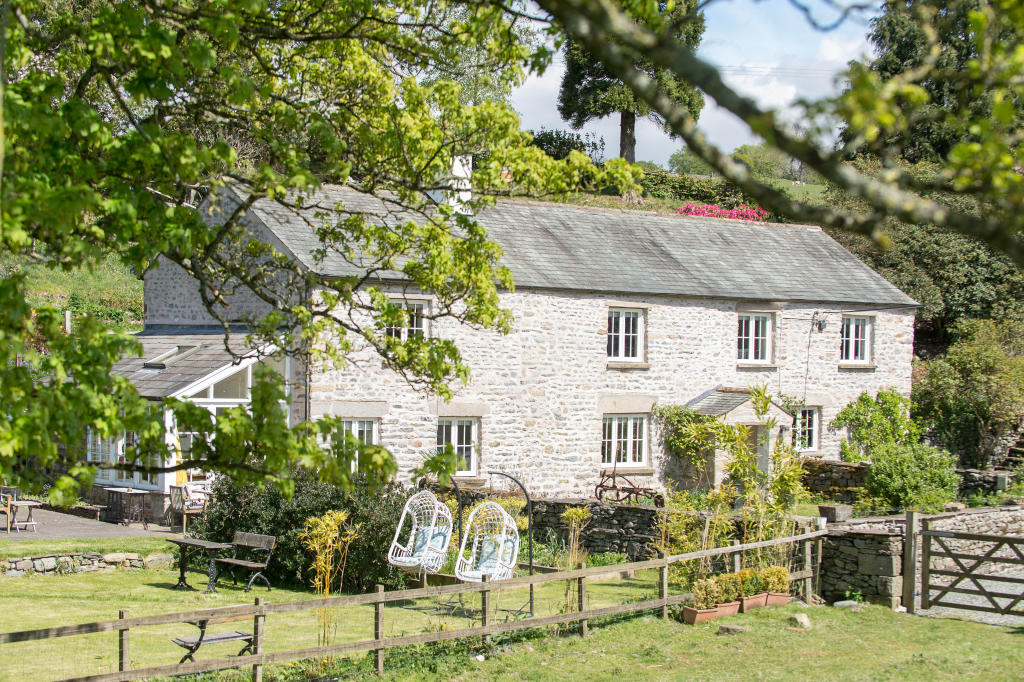Nine things you should consider before moving to the countryside
Countryside house moves are on the up, no surprise with the demand for larger houses increasing, according to recent data shared via the ONS (OfficeforNational Statistics). The ONS spoke of a 4 year high in demand for larger properties and homes with gardens. According to a recent survey, nearly 1/3rd of potential buyers are now considering a move to more rural areas.
City dwellers and those in more confined spaces are looking for property alternatives where space is more of a factor, perhaps a knock-on effect of the covid pandemic where we are asked not to be too close to one another and to “stay 2 meters apart”, something that is very difficult to do if you live in a city tower block, apartment or townhouse with little or no private outdoor space or garden area.
So the countryside could sound quite appealing then, all that country air, greenery and properties with a bit of land perhaps. But how do you pick where we buy? and, what type of property should I buy? Questions, questions and more questions. To help you reach the right decisions we have put together this guide to countryside property which walks you through some of the main considerations.
Countryside move considerations:-
In a recent survey, half of home-movers told us that being in lockdown has changed what they’re looking for in their next home. And one noticeable change is that almost one third (30%) of buyers would now consider moving to a rural area. There are obvious benefits to living in the countryside: The space, contact with nature, fresh and unpolluted air, and the peace and quiet. And you may get a lot more for your money depending on the location you choose.
But if you’re thinking of taking that leap and joining the countryfolk, there are several things you should think about – especially if you’ve never lived in a small village or rural area before. So to get you started, we’ve compiled a list of things to consider before making your move.
To help us get it right, we spoke with Jeremy Miller, who runs a family-owned estate agency in Cornwall named Millerson. His family has been selling homes in the countryside since 1936, and he had some great advice for newbies.
1. Think carefully about where you want to live
 Spending a holiday somewhere is very different than living there. You’ll find that there are details of day-to-day life that may not matter when holidaying, but are important to a resident.
Spending a holiday somewhere is very different than living there. You’ll find that there are details of day-to-day life that may not matter when holidaying, but are important to a resident.
Jeremy says, “I urge people to spend time getting to know as many areas as possible, during summer and winter, on weekends and weekdays. Things like traffic and travel times can be quite seasonal. A trip that takes half an hour in spring, could take an hour in summer.”
The feel of each town and local community can vary hugely from place to place, and you’ll want to settle in a spot that suits you and your family.
2. Get ready to drive
Transport links vary from place to place, but it’s safe to assume you won’t be able to count on public transport a lot of the time. It is ideal, if not imperative, that you have a car. You will need it.
“This is one of the main things I hear from people who have moved from cities. That they’ve had to get used to driving several miles to get anywhere,” Jeremy tells us. “Running out of milk in the evening could be a minor issue – especially if you’ve had a glass of wine!”
This is something you’ll get used to, and it will become second nature to plan ahead and make the most of each trip.
3. Local amenities
Think about some of the things you enjoy that you do regularly. Gym? Shopping? Theatre? Nightclubs?
These options can be limited in rural areas, so you may need to compromise. But with a bit of luck, thorough research, and the willingness to drive, you might find a sweet spot.
It’s also worth finding out what the local taxi service is like.
4. Schools and childcare
If you are a family with children, one of your top priorities will be looking for good schools and childcare options in the area.
Jeremy told us, “Schools in rural areas are often very good, and are typically able to offer a greater variety of extracurricular activities. But as will often be the case, you may need to prepare to drive further than you’re used to. A 30-40-minute drive for school runs is not unusual.”
It’s worth checking each school’s admissions policy. You might think you’re in the catchment area but you need to be sure.
5. Airports and flights
For those of you who travel abroad regularly, this could be a key point. Trips to international airports may be much longer.
“This is often something that is overlooked, as it doesn’t seem like a big deal at first,” Jeremy explains, “but realising that you’ll have to drive 3-4 hours whenever you have a flight to catch, or when you need to pick someone up, will take some serious getting used to!”
6. Ease your way into the community
 Rural areas are often known for enjoying a stronger community spirit. This is a definite benefit, and something you might find will become important to you further down the line.
Rural areas are often known for enjoying a stronger community spirit. This is a definite benefit, and something you might find will become important to you further down the line.
When asked about this, Jeremy assured us the rural community is very welcoming.
“The only time I’ve ever heard of any complaints about a newcomer was when someone bought a property, and within weeks they arrived with bulldozers and began a massive project – all without having even met the neighbours yet.”
Come to think of it, this could’ve happened anywhere, but it’s still a good idea to introduce yourself and get to know your neighbours a little.
7. Broadband
This is getting better and better every year, but there are still a few spots in the countryside where it’s not great, so make sure you look into that.
8. Weather you like it or not…
You will become obsessed with the weather, especially as you could find yourself out walking hours away from home, so again you’ll need to be well prepared and plan ahead.
9. The property
If work needs to be done to it, is there a decent choice of good and affordable local tradesmen?
And do some research to find out if it’s a good investment. Check our sold prices to see how much properties have sold for in the area over time.
You may also want to think about whether there is room for expansion in the home. Don’t be surprised if you become the new weekend hub for family and friends!
Ready to find your rural retreat? Use our ‘Where can I live’ tool to help you find out where you can afford.
SOURCE: RIGHTMOVE.CO.UK


